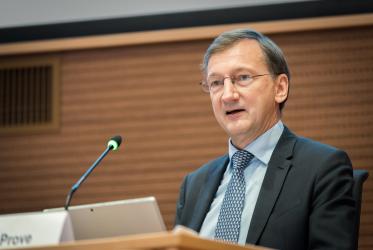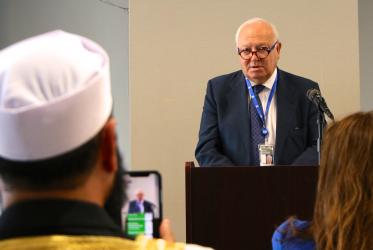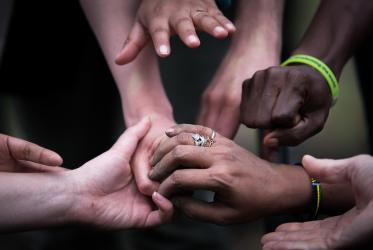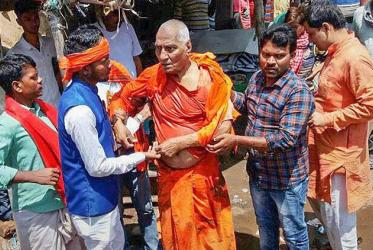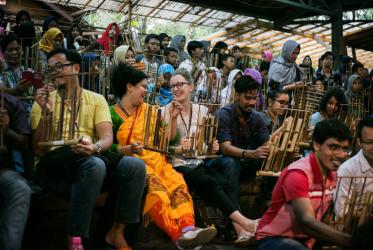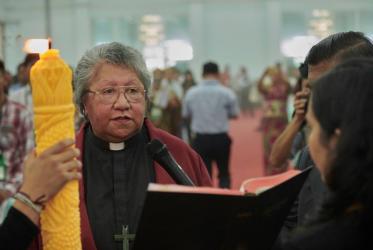Displaying 1 - 20 of 59
Worshipping safely: UN, faith communities unite to prevent violence
20 September 2019
In Korea, young ‘stewards of hope’ forge ahead together
19 September 2019
WCC represented at G20 Interfaith forum in Tokyo
13 June 2019
Peacemakers at work in Sri Lanka
29 April 2019
Peace is common denominator of all major religions
05 March 2019
"Diversity" documentary reflects on maze of self-identity in Canada
27 September 2018
Youth in Asia can now apply for WCC inter-religious training
15 February 2018
WCC delegation visits China
04 January 2018
